Turkey's anti-war protesters detained: 'Everything is a crime'
- Published
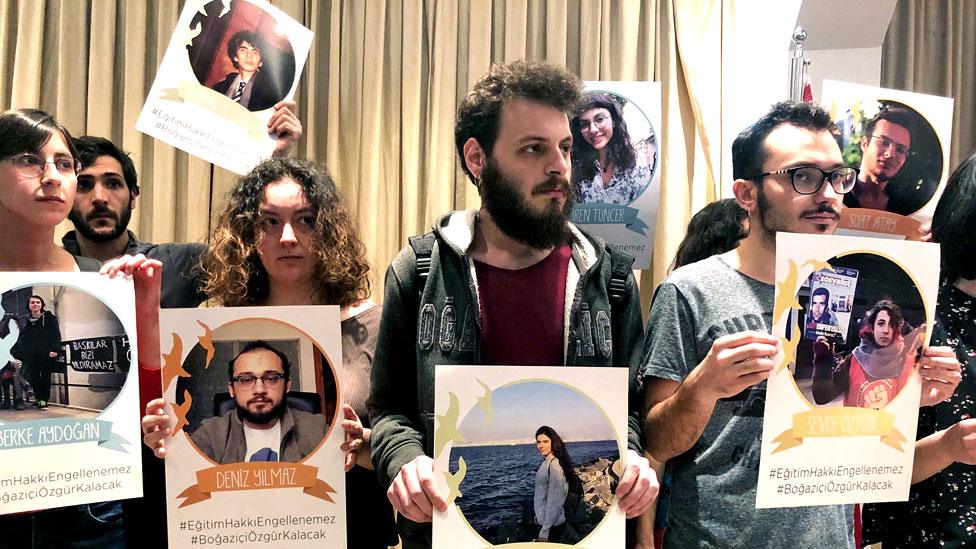
Students show posters of detained colleagues
"It was 04:00 when the police came beating at my door. 'Open up! Open up!' they were shouting," recalls Denizhan Eren, a 23-year-old college student.
"As soon as I opened the door, they yelled 'Lie down!' They had huge guns and they were wearing balaclavas."
Denizhan is one of a number of students from Turkey's prestigious Bogazici University who have been detained in Istanbul in recent weeks.
In total 31 students have been detained. While 10 have been freed, eight have been released pending trial and another 13 students are still being held in pre-trial detention.
The arrests began after a demonstration on campus that opposed other students handing out Turkish delight to hail the army's capture of the Kurdish enclave of Afrin in northern Syria.
The protesters had opened up a banner reading: "There should be no celebration of an occupation or a massacre."
This did not go down well with the government. It considers the US-backed Kurdish YPG militia that controlled Afrin a terrorist group and an extension of the banned Kurdistan Workers Party (PKK).
Responding to the university protests, President Recep Tayyip Erdogan labelled the students traitors and terrorists for speaking out against the operation.
"We will evoke their right to education," he said.
The families of the jailed students later condemned the arrests at an emotional news conference. Some tried to hold back their tears, some were ranting in rage.
"This was a clear provocation," said one father. "Our children do not belong to prisons. Our children belong to their university. The authorities should apologise."
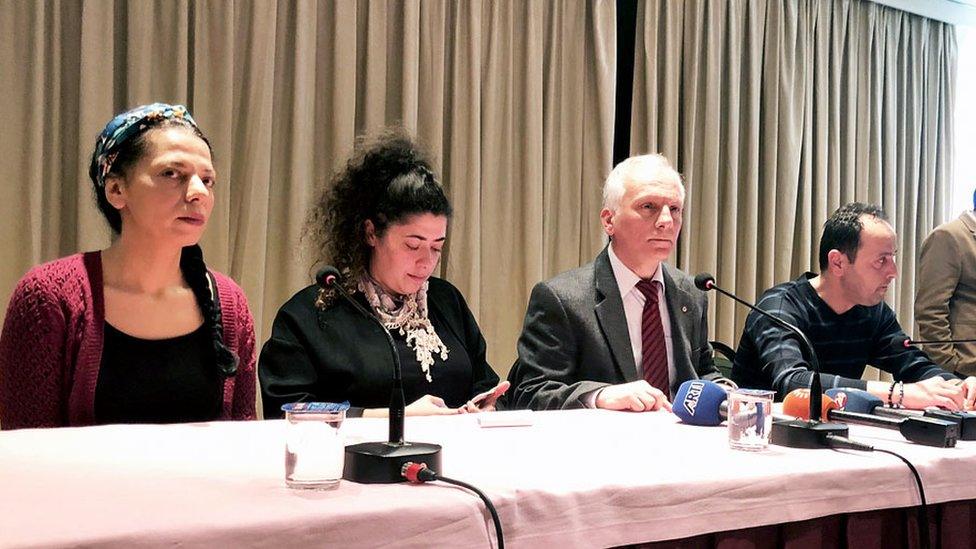
Ozgur Tuncer (left) says Turkey treats people who are against war as terror propagandists
Academics were frustrated too. "How can we tolerate this? I cry every day. I'm in pain," said one professor.
"I want to be with my students. I was with them at the classroom, and I should be with them in prison too."
'They never threw a stone'
Ozgur Tuncer's daughter is still being held in detention. Her "sensitive" Yaren, she says, is "anti-war" and a "supporter of peace".
"Being anti-war in Turkey is perceived as terror propaganda these days. The Turkish constitution has a clause protecting freedom of speech and expression. Isn't this a country of rule of law?" she asks.
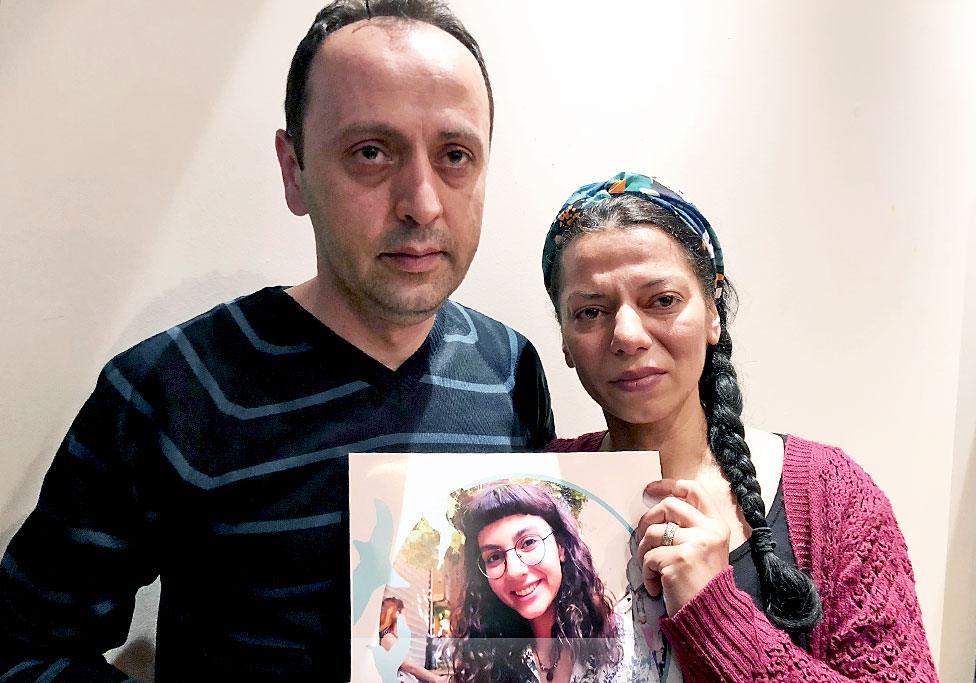
Yaren's parents hold a poster of the student, detained last month in Istanbul
"These children never threw a stone, never held a weapon or even a stick.
"All of them are anti-war, anti-guns. How can you call such children terrorists? How can you portray them as enemies? I find it very difficult to comprehend."
In the first month after Turkey launched its operation in Afrin, the authorities detained 648 people over social media posts criticising the action.
Another 197 people were taken into custody for expressing criticism in other forms, including street protests, or for supporting the demonstrations.
When the Turkish Medical Association published a statement with the headline "War is a matter of public health", warning that conflicts such as Afrin could lead to further health problems, 11 doctors were detained. President Erdogan accused the doctors of treason.
Since then, many more criminal investigations have been opened.
'Everything is a crime'
"In Turkey, the issue that has led to the harshest targeting of peaceful freedom of expression is questions over the Kurdish issue," says Andrew Gardner from Amnesty International.
"This has never been more the case than unfortunately today with Turkey's military operation in Afrin.
"If you look at international human rights law and Turkey's own constitution, opposing war or opposing the way in which the war is being fought is protected speech. It shouldn't be prosecuted in any way. But now it's a de-facto crime to criticise the Afrin operation, or any military operation."
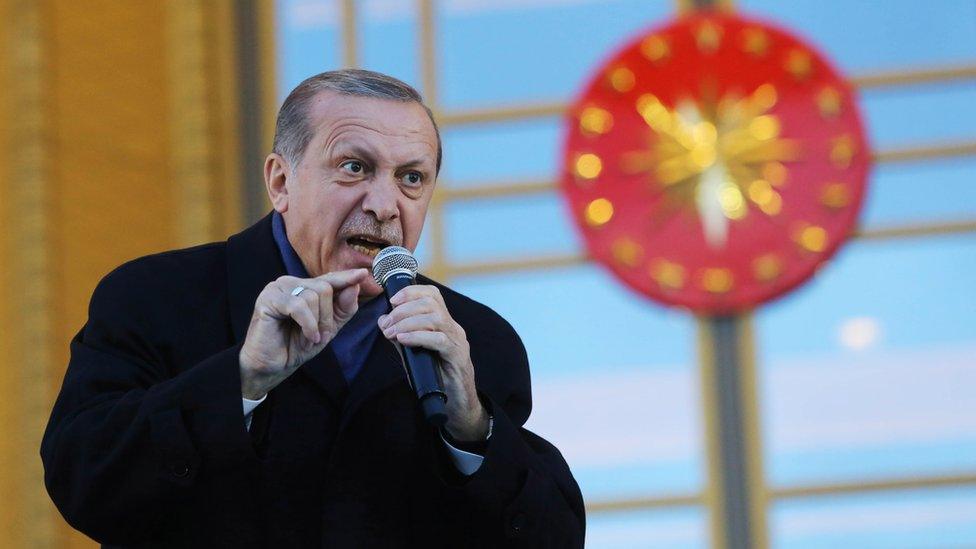
President Erdogan has accused critics of Turkey's operation in Afrin of treason
Academic Nurcan Baysal was detained a day after the launch of the military incursion on Afrin over her anti-war posts on Twitter.
"Police broke down my door when they came to detain me. I thought my house was being bombed, or a civil war had just erupted. What was my crime? I had just demanded peace," she says.
Ms Baysal was released after three days in detention. Her trial is set to start next month. She is accused of spreading hate and animosity within society and is facing three years' imprisonment.
"Today, everything is a crime in Turkey. Everyone is a terrorist. Being anti-war is a crime. Demanding peace is a crime. Saying no to death is a crime," she says.
"They want us to applaud death. I refuse to do that. If we do not raise our voice, more of the like will follow. If people demanding peace are arrested today, who knows why others will be arrested tomorrow?"
- Published22 January 2018
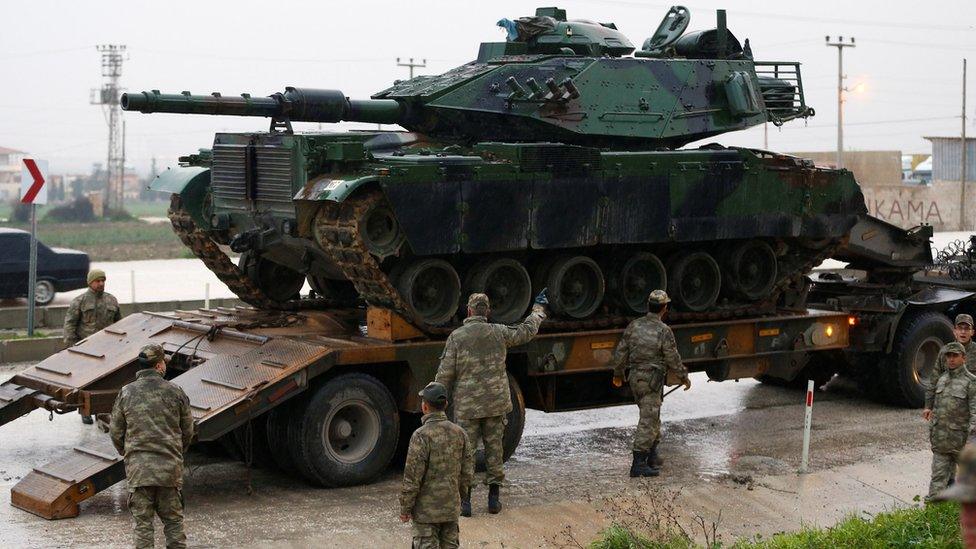
- Published28 December 2017
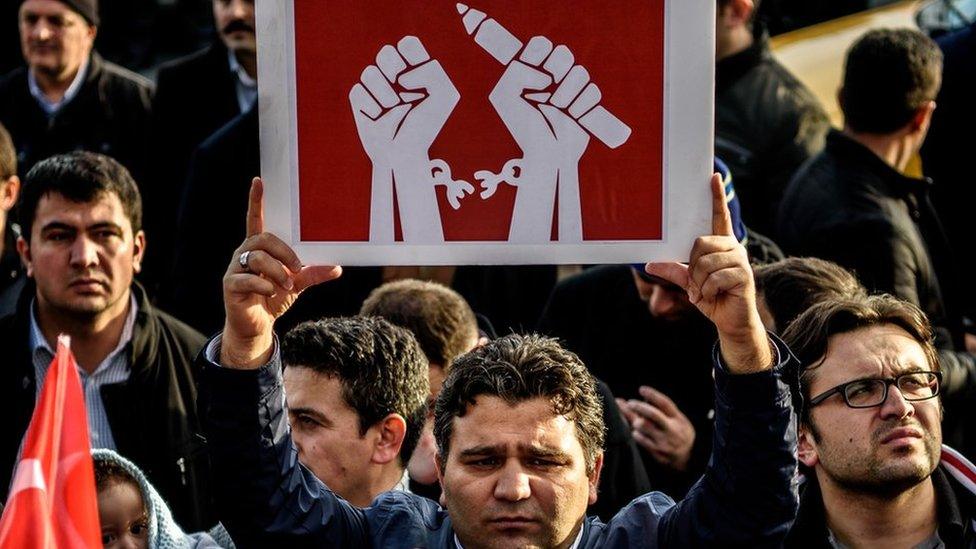
- Published15 October 2019
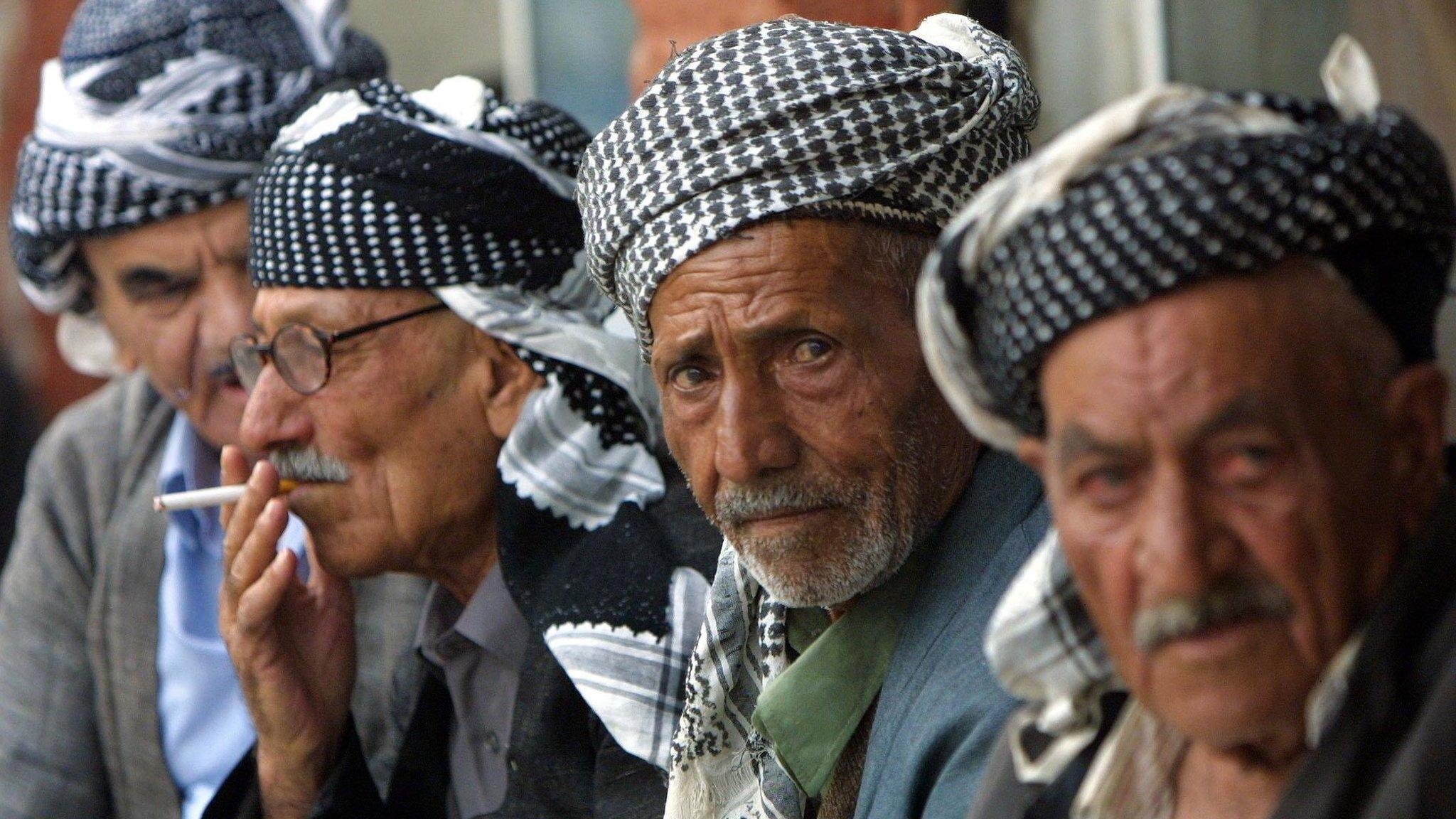
- Published24 March
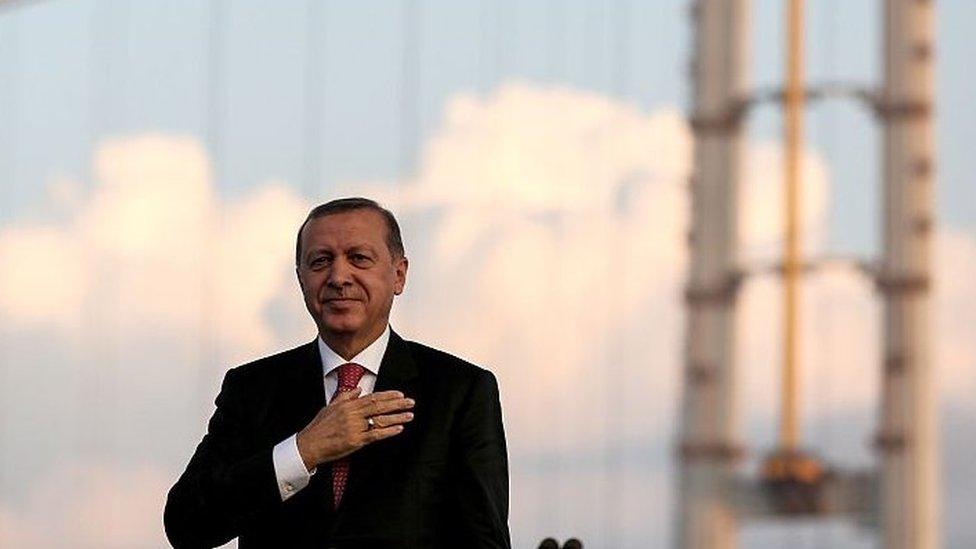
- Published22 August 2023
